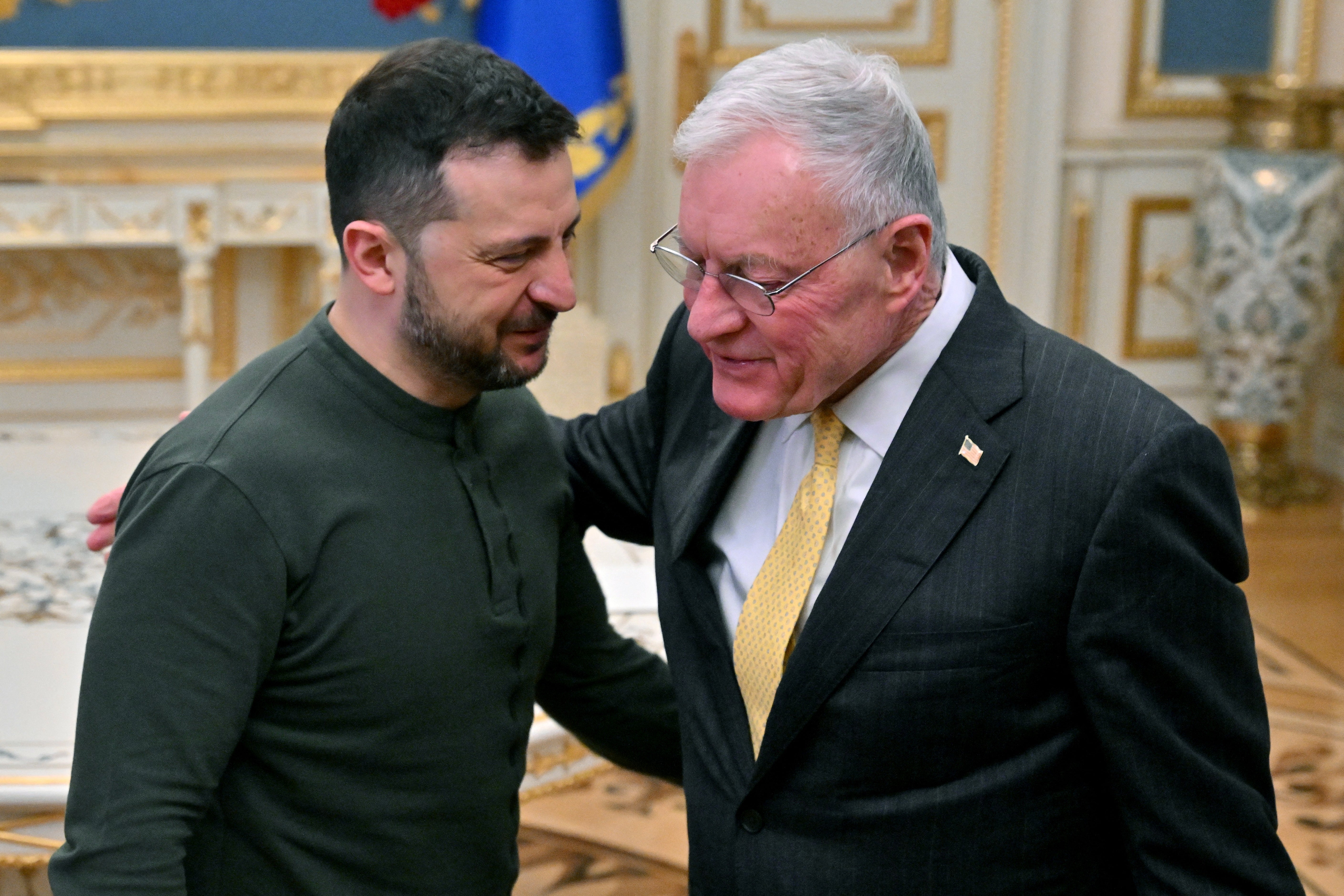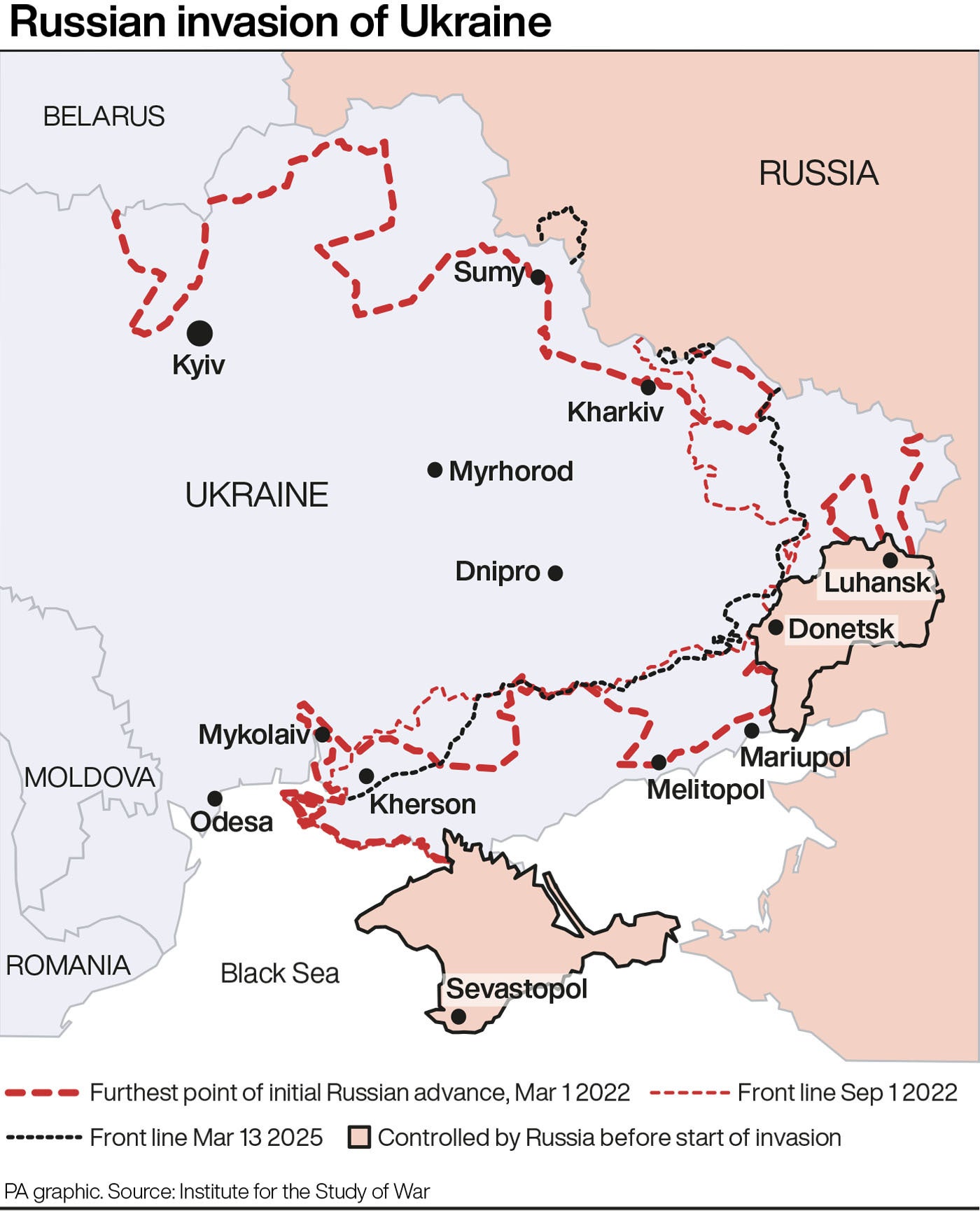Ukraine could be partitioned like Berlin after the Second World War as part of a peace deal, US President Donald Trump’s special envoy for Ukraine and Russia has suggested.
Retired lieutenant general Keith Kellogg said in an interview with The Times that UK and French troops could adopt zones of control in the west of the country, forming a “reassurance force”.
Russia’s army could remain in the occupied east, and between the two would be Ukrainian forces and a demilitarised zone, said Gen Kellogg, who was previously national security adviser to former vice-president Mike Pence.

The Anglo-French-led force west of the Dnipro river, which bisects Ukraine from north to south, would “not be provocative at all” to the Kremlin, he told The Times.
Last month, Gen Kellogg was excluded from peace talks because the Kremlin complained that he was “too close” to Kyiv, it was reported.
Now he has said Ukraine is big enough to accommodate several armies seeking to enforce a ceasefire. “You could almost make it look like what happened with Berlin after World War Two, when you had a Russian zone, a French zone, and a British zone, a US zone,” he said.
America would not contribute any ground forces, he said.
A demilitarised zone of 18 miles could be implemented along existing lines of control in the east.
However, Moscow has repeatedly insisted it would not accept peacekeeping troops from any Nato country “under any conditions” in Ukraine.
Gen Kellogg’s suggestion would mean Ukraine giving up on regaining its eastern territories that are now under Russian control. But it was unclear whether he was suggesting Kyiv cede to Russia any further territory east of the river.
With Vladimir Putin repeatedly being accused of delaying any plans for a ceasefire as agreed by Ukraine’s president Volodymyr Zelensky, the White House insisted Mr Trump would use his influence over Russia to negotiate a peace deal.

Spokesperson Karoline Leavitt said: “We believe we have leverage in negotiating a deal to a peace deal, and we’re going to use that leverage, and the president is determined to see this through.”
The Institute for the Study of War, a Washington think tank, said Russia was using bilateral talks with the United States to delay negotiations about the war, “suggesting that the Kremlin remains uninterested in serious peace negotiations to end the war”.
Mr Trump’s special envoy, Steve Witkoff, held talks about a peace deal with President Putin for several hours in St Petersburg.
The Kremlin posted a photo on its website of the two men shaking hands, saying the meeting had taken place.
“The theme of the meeting, aspects of a Ukrainian settlement,” it said.
Russian news agencies said the meeting lasted more than four hours.
Just as the talks were about to begin, Mr Trump warned on social media that Putin should make progress on a ceasefire.
He posted: “Russia has to get moving. Too many people are DYING, thousands a week, in a terrible and senseless war.”
Ms Leavitt said Mr Witkoff was discussing efforts to end the war with Putin and other officials. “This is another step in the negotiating process towards a ceasefire and an ultimate peace deal,” she said.
Immigration judge rules Mahmoud Khalil can be deported: a timeline of events
Israel says new security corridor completed, severing Gaza's southernmost city
Tariffs live: Federal Reserve threatens to step in as Trump still defends levies
Ukraine war latest: Trump envoy suggests dividing up Ukraine like post-war Berlin
EU irked by Turkish warnings against Greece-Cyprus-Israel electricity cable link, Cyprus says
Peace in Ukraine ‘appears out of reach’ in near future as Putin ‘drags feet’ on deal







